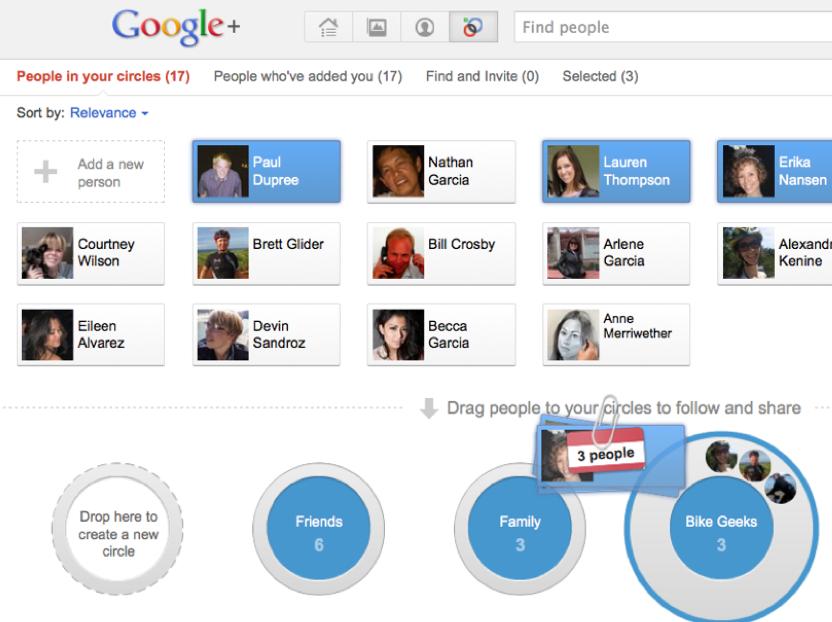 It’s my fourth day on Google +, the search giant’s new social network service, and my impression is….non existent.
It’s my fourth day on Google +, the search giant’s new social network service, and my impression is….non existent.
I don’t know what I think of +, but I must admit I’m intrigued. It’s obvious that there are tons of features within the service that Google is not pushing or even unveiling yet, for fear of scaring users off with too much complexity. It’s also clear that Google could have made things easier for me, algorithmically suggesting (or even automatically assigning) some friends from my Gmail contacts to get me started. But after their privacy snafu with Google Buzz, they don’t dare. Google doesn’t want to be pushy. It’s up to me to pick and choose who I’d like to share with, and then it’s up to them to decide if they want in too.
On first glance, + does seem like a Googly Facebook clone. “News feed” becomes “Stream”, “Groups” becomes “Circles”, etc. The first big distinction you’ll notice is that Google is pushing privacy—you’ve got intuitive and precise control over who sees what. Even with Facebook’s “lists” I’m never sure who’s seeing my photos and comments, and Google is using that (deliberate) Facebook flaw as their initial point of differentiation.
But many are asking: is that enough to get hundreds of millions of Facebookers to switch?
I think that’s the wrong question. Nobody approaches a social media app the way they approach a traditional consumer product, weighing the features carefully and then selecting. I joined Facebook at some subtle moment when it seemed natural to do so, when whatever qualms or questions I had about it were outweighed by the fact that my friends were all hanging out there.
Perhaps Google has finally figured this out. Rather than trying to dazzle us with an awesome host of new features, as they did with the ill-fated Google Wave, + is soft-launching in a humble, stripped down form (it’s not even a beta release, it’s a “field-test”). Harkening back to the stealthy tactics used to roll out GMail, you need an invite, adding enough artificial scarcity to make joining attractive to insecure geeks like me (I’m in, losers!).
Once a few million people are using Google +, some of their likes (pluses?) and comments will probably start appearing to non-users as they use other Google products. Basically, it’s a Google-wide push to add a “social layer” to their services, which reach pretty much everyone on the Internet. So even if you don’t use +, when you search for a restaurant you may get reviews or photos from friends, along with the usual returns.
These notes from the + party will get more and more ubiquitous. At a certain point, you’ll probably join too. It’ll just seem natural.
Jesse Brown is the host of TVO.org’s Search Engine podcast. He is on Twitter @jessebrown.